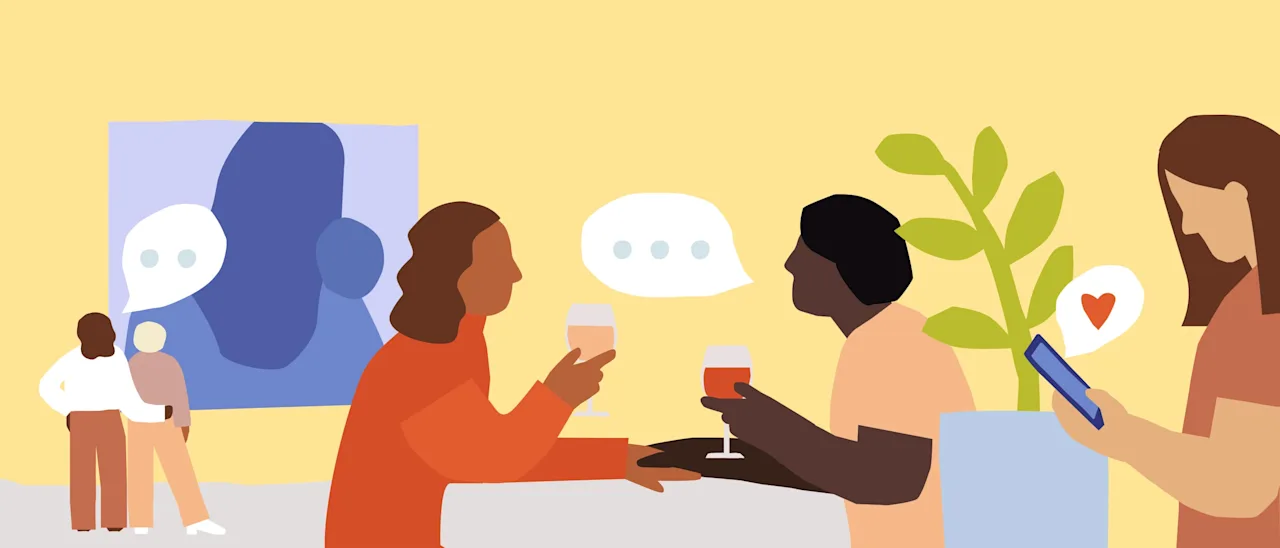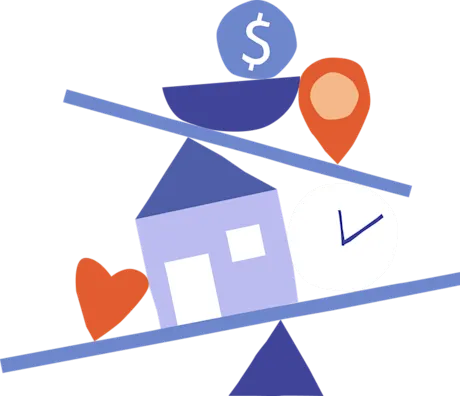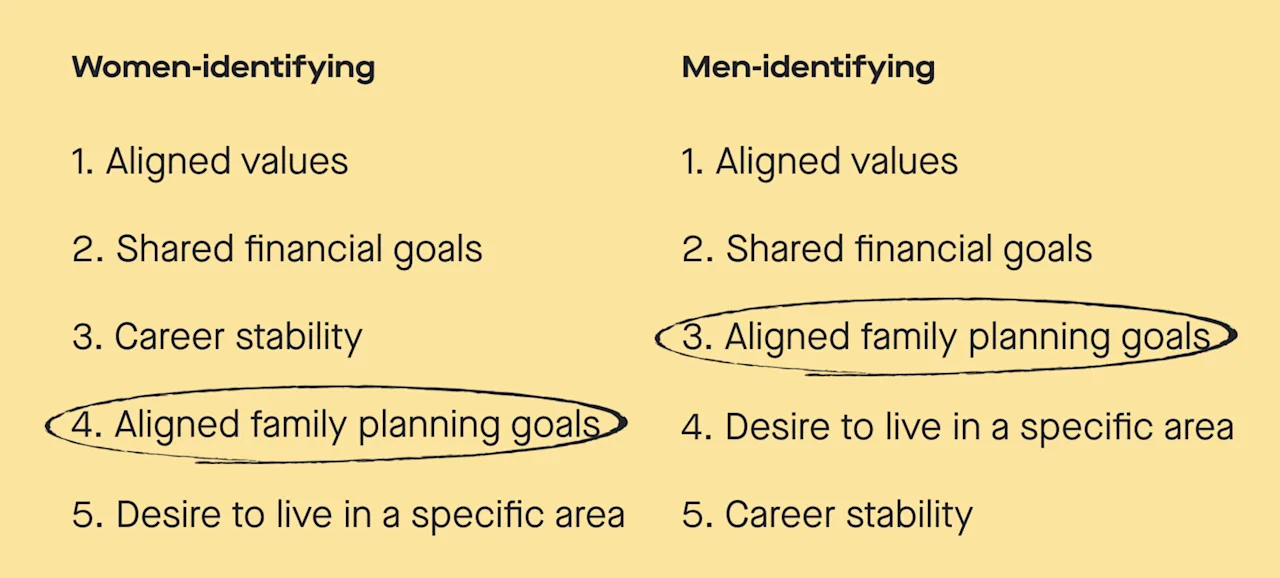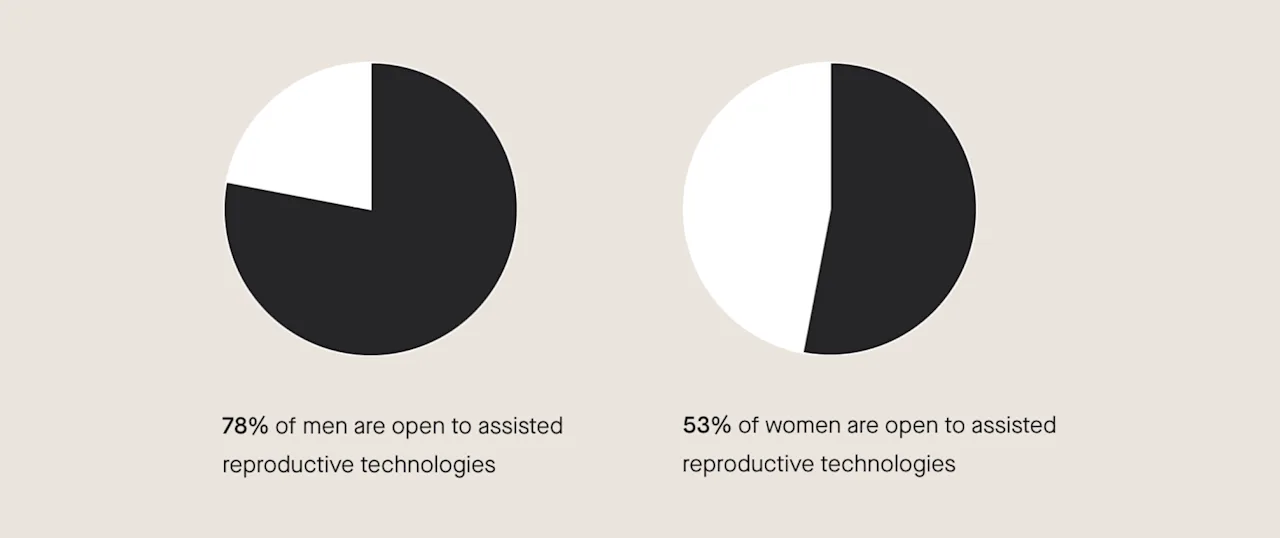Modern State of Fertility 2022: Dating + Fertility

Questions we set out to answer
Do people think kids are essential to living a fulfilling life?
Where do kids stack up on the priorities for choosing a partner?
Is it still taboo to talk about kids on the first few dates?
How do women and men differ in their approach to building families?
Has the pandemic impacted the way we date and timelines for kids?
BTW: We had respondents who identified as cisgendered women, trans women, non-binary, cisgendered men, trans men, and gender queer. When we refer to “women” and “men” we include all people who self-identify as women and men (trans, cis-gender, ovaries or sperm).
Baby = life goals? Not quite.


78% of people don’t think having kids is essential to living a fulfilled life.People are shifting away from kids as priority #1 and focusing on other pursuits.
19% of respondents don’t want kids or are unsure.
2 of 3 said family planning doesn’t play a significant role in their dating choices or dating life.
Men were slightly more likely to say that having kids is essential to living a fulfilled life

FROM THE MODERN COMMUNITY
“I’m undecided on having kids because this is one decision I want to arrive at on my own, and not because I’m trying to make family or friends happy.”
Anonymous, 27
The modern ranking of dating priorities


When it comes to finding a partner, aligned values are #1 and aligned financial goals are #2
While men and women respondents agree that shared values and financial goals are most important, they differ on what comes next. In fact, men ranked aligned family planning goals higher than the women did.

Similarly, in a separate data report commissioned by Bumble in 2021, with a sample size of over 5,000: 81% of US adults surveyed agreed that, "You should wait to start a family until you are financially established and can support a family."
FROM THE MODERN COMMUNITY
"I discuss family planning with my partners. If they are absolutely against having children I need to know so I don't waste my time. In your 30s, most people are no longer unsure if they want children. It's either absolutely or not really. I want to know where you stand."
Mia, 35
Do you want a drink? And do you want kids?


Well, it’s not exactly like that, but people are not afraid of bringing up fertility while dating
Perhaps surprisingly, 35% of respondents are comfortable having an open and intentional discussion about fertility and family plans within the first few dates.
When it comes to respondents who want kids, men are down to share their plans for kids early on

Men who want kids are also almost twice as likely to say they’d share that they want kids in their dating profile

Bumble’s user data backs this up. According to app data from Feb 2022, 40% of active male users have the “want kids someday” badge on their profile, compared to only 28% of active women users.
People who have frozen their eggs are open to discussing it within the first few dates

FROM THE MODERN COMMUNITY
“Egg-freezing was such an intense experience. After all those injections, hormones, up-and-down feelings, and payments, I felt like I had no other option but to be an open book. Plus, I did it to take some of the pressure off of my timeline and dating. I think any mature and thoughtful date can appreciate that, so sharing it, even on the first few dates, always felt net-positive.”
Ciera, 33
Family, dating, and COVID… oh my!


Bye bye, baby crazy stereotypes
Men who want kids were more likely to say that family plans played a significant role in dating choices: 49% (men) vs. 37% (women). Men who want kids are also more likely to say it’s a deal breaker when the other person doesn’t want kids (58% vs. 47%).
Here’s where it gets interesting:
Of un-partnered participants, men were more likely to size someone up as a potential parent while dating

Of un-partnered participants, men were more likely to date someone with different family goals with the hope of being able to change their mind

COVID has changed things
40% of women who want kids are being more up front about their timelines due to COVID “delays” vs. 20% of men who want kids.
1 in 4 people want to move quicker with dating since the pandemic.
29% of people are more upfront about family planning goals since the pandemic.
FROM THE MODERN COMMUNITY
“I'm doing the online dating thing and I have been surprised by the openness I've experienced with men talking about wanting children. I think it also gives me more information about the guy when you hear how they want to raise kids. It makes it easier to see if you are on the same page.”
Anonymous, 34
There is more than one way to build a family


People are increasingly open to non-traditional paths to parenthood
Of the respondents who want kids, 57% say they’re open to using some assisted reproductive technologies (ART) like artificial insemination and IVF.
And get this:
Men are more likely to be open to assisted reproductive technologies

Men are also slightly more likely to be open to having kids via a surrogate

More than half of men are open to adoption

For LGBTQ+ respondents who often rely on ART or adoption, openness is higher

But when it comes to becoming a single parent by choice, women are much more open
53% of women who want kids (you read that right, more than half!) said they would be open to single parenthood via ART or adoption. Only 16% of men said the same.

This trend seems to be on the rise. In the 2021 Modern State of Fertility report, 27% of women respondents who wanted kids said they didn’t feel like they needed a partner to become a parent.
FROM THE MODERN COMMUNITY
“Being a single parent has always been a thought in my mind. As I've gotten older and dated more, I've realized that I'd rather give a child one loving parent than two who aren't as happy. I have a good job, I'm financially stable, and I have the support of my friends and family. I also know that this is what I want and have wanted for so long. This kid will be loved no matter what.”
Nicole, 32


We make personalized fertility information and support more accessible for people with ovaries. Now part of Ro, we offer fertility essentials — including at-home tests and tools — that help you get proactive about your reproductive health.


Bumble connects people across dating, friendship and professional networking. No matter the type of relationship, women make the first move on Bumble. Bumble is built on the importance of equitable relationships and how crucial they are to a healthy, happy life.
Methodology
Bumble and Modern Fertility conducted this survey in February of 2022 with 6,639 people, including people who identify as cisgendered women, cisgendered men, non-binary, gender queer, trans. Participants ranged from 18 to 50 years old, and were 55% women (cisgender, trans, women-identifying), 26% men (cisgender, trans, men-identifying), and 4% non-binary, with 16% responding "other" or "prefer not to say." The survey was a cross-sectional survey designed to uncover the roles that partner selection and dating play in fertility and family planning. As part of this cross-sectional survey, the data were gathered at a single point in time, and there were no attempts to change or alter beliefs in any way during data collection.

